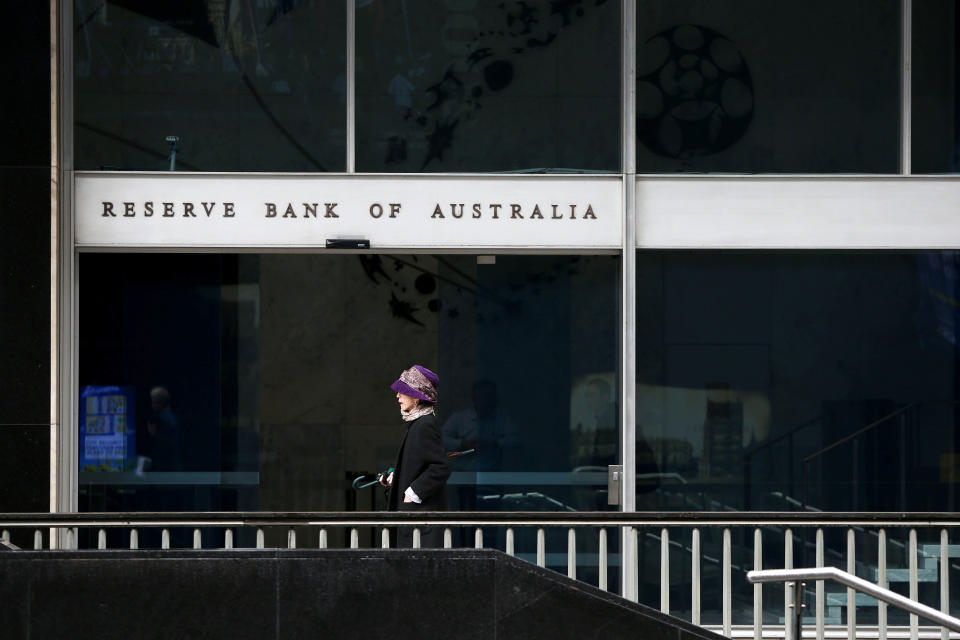RBA: Rate cuts are not off the table, and 'QE is a policy option in Australia'

The RBA has been saying all year that the next move in official interest rates is likely to be up.
The central bank's deputy governor used a speech in Sydney to clarify that the bank will still cut rates if required -- and that it is also prepared to use quantitative easing in a crisis.
This week consensus around the future direction of interest rates among economists started to fracture.
One of Australia's most senior central bankers has made it clear that official interest rate cuts are still an option if required by economic conditions, adding that unconventional monetary policy tools used in other parts of the world to deal with the GFC would be an option for Australia in a crisis.
Reserve Bank of Australia (RBA) deputy governor Guy Debelle used a speech in Sydney to say there is "still scope for further reductions in the policy rate" from its current record low of 1.5%.
Debelle said the lessons of central banks' responses during the GFC were to "go fast and go hard. Don't die wondering", as he canvassed Australia's policy options for dealing with a severe downturn.
Debelle said that quantitative easing, or QE as it's known, could be deployed by the central bank to deal with a crisis in financial markets.
Financial markets and economists have been broadly aligned in their view for some time that the next move in the RBA's official cash rate will be up, although that consensus started to crack this week after some weaker-than-expected economic data and no sign of a halt to the deteriorating property prices being seen in the major cities.
While both the potential for future official rate cuts and a QE program are straightforward realities, the timing and clarity of the remarks is notable after GDP data for the September quarter this week revealed continuing pressures on the household sector.
"The Reserve Bank has repeatedly said that our expectation is that the next move in monetary policy is more likely up than down, though it is some way off," Debelle said, speaking at the Australian Business Economists Annual Dinner.
"But should that turn out not to be the case, there is still scope for further reductions in the policy rate. It is the level of interest rates that matters and they can still move lower," he said.
On the potential for an Australian form of QE, Debelle said:
We have also been able to examine the experience of others with other tools of monetary policy and have learned from that. Hopefully, we won't ever have to put that learning into practice. QE is a policy option in Australia, should it be required. There are less government bonds here, which may make QE more effective. But most of the traction in terms of borrowing rates in Australia is at the short end of the curve rather than the longer end of the curve, which might reduce the effectiveness of QE. The RBA's balance sheet can also expand to help reduce upward pressure on funding, if necessary, as occurred in 2008.
Senior economists Business Insider has spoken to in recent weeks have mentioned the prospect of some sort of QE program being an option for the RBA if the weakness in the property market begins to look like it could inflict serious damage on the economy.
A QE program in Australia would likely take the form of the RBA buying residential mortgage-backed securities (RMBS), the debt instruments issued by major banks and other lenders. There are over $300 billion of them on issue and the RBA is an obvious intermediary or lender of last resort for them in a crisis.
The Australian dollar, which has been under pressure during the Asian trading session all day, weakened further on the release of Debelle's remarks. It fell from 0.7230 against the US dollar just before Debelle's speech was released to just under 0.7195 a short time ago.
Now read: Yahoo Finance’s morning wrap on Friday
Now read: JP Morgan on the 4 factors that will shape the Aussie economy in 2019

 Yahoo Finance
Yahoo Finance 

